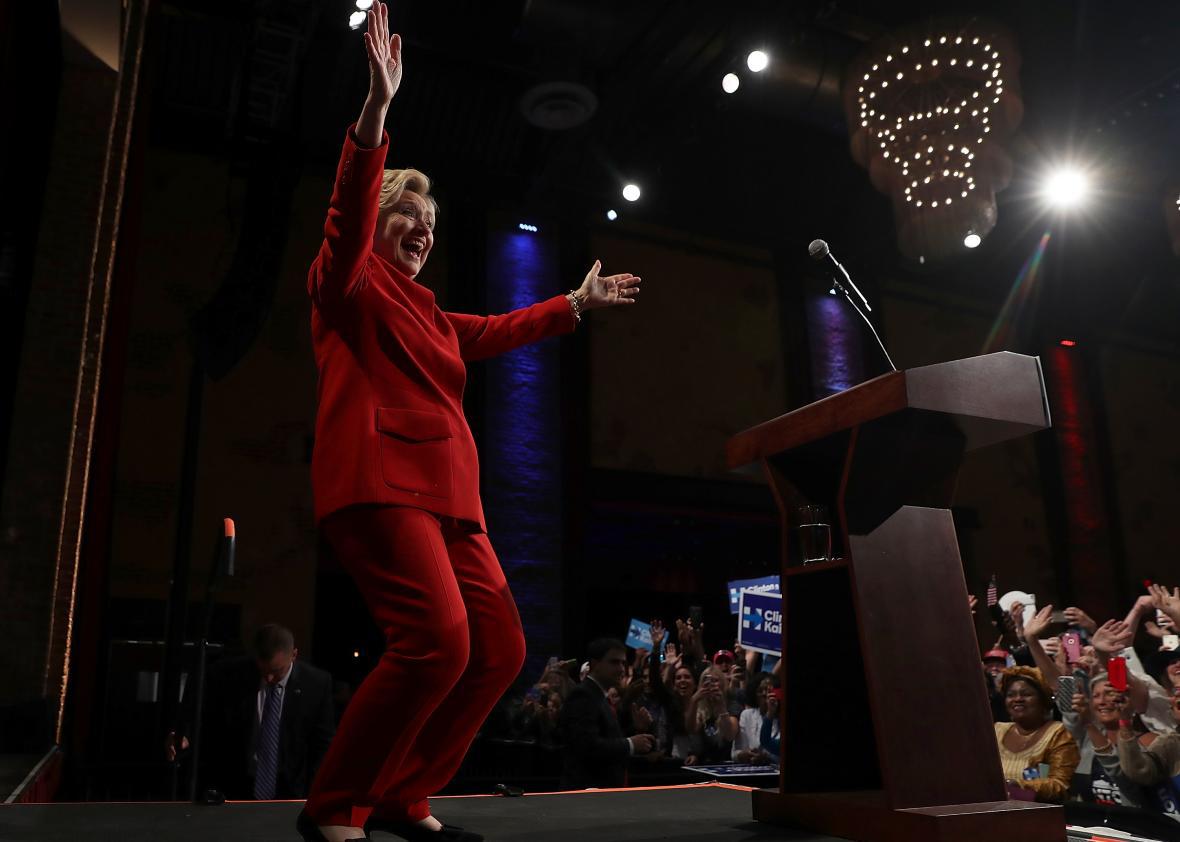The winner of the first presidential debate is not up for debate. Hillary Clinton wasn’t perfect—particularly at the start—but she grew stronger as the night wore on. Donald Trump, meanwhile, began to fall apart roughly a third of the way through the 90-minute affair and only became more nonsensical and aggrieved from there. The night went so badly for him that Rudy Giuliani, one of his top surrogates, said afterward that if he were Trump, he’d sit out the final two debates altogether.
But just how much will Monday night’s outcome matter come November?
Talking heads and the cable news networks that employ them have an incentive to overhype the importance of a presidential debate. Historically, however, there’s just not a lot of evidence that one good debate—or one bad one—can irrevocably change a candidate’s fortunes. In 2012, for example, Mitt Romney was widely considered to have shellacked President Obama in the first head-to-head contest. But while Romney erased Obama’s four-point lead in the national polls shortly thereafter, the president would eventually go on to pull away again. Political scientists, meanwhile, have taken a closer look at those alleged debate game-changers—Richard Nixon’s sweating; Al Gore’s sighing—and have failed to find evidence that they mattered all that much. In fact, only two of the past seven “winners” of the opening debates have gone on to win the election.
That’s not to say that debates don’t matter at all—just that they’re only part of a larger puzzle that is put together over an entire year. It will be a few days before we have enough data to draw any real conclusions about whether Monday’s debate changed any minds. But the limited snap polling taken overnight suggests that Clinton should see a small bump. Debate watchers surveyed by CNN/ORC, for instance, called the debate for Hillary by a 35-point margin, with 62 percent saying she won compared with only 27 percent who said Donald did. That’s the third most-lopsided result in the survey’s history, which dates back to 1984. The only larger margins of victory were Romney’s 42-point defeat of Obama in the first 2012 debate and Bill Clinton’s 42-point win over George H.W. Bush in the second 1992 debate, which also featured Ross Perot.
The group surveyed by CNN this year appears to have skewed Democrat slightly, but Nate Silver points out that the poll’s results have correlated relatively well with post-debate poll movement in elections past. As a result, Silver suggests that Clinton could theoretically see a gain of about 2 to 4 points, which would be on the higher end of post-debate swings in modern history. It would also more than double Clinton’s current lead in the national averages and restore her advantage to where it was in the middle of August during Trump’s post-convention controversy tour.
I’ll leave the prognosticating to the prognosticators. But something to keep in mind as the post-debate polls roll in this week is what impact they may have on Clinton’s decision-making between now and Election Day. If she really does pick up a few points as expected, it will re-establish her as the clear favorite, which could spur her to focus on trying to build that lead further. But if her bounce is muted (or non-existent), she will have to consider the fact that the nation’s polarization—along with her historically bad-but-for-Trump favorability ratings—has already largely locked the electorate in place. In that case, the final month of this election will be less about drawing in undecided and more about fiercely protecting and mobilizing the support she has.
